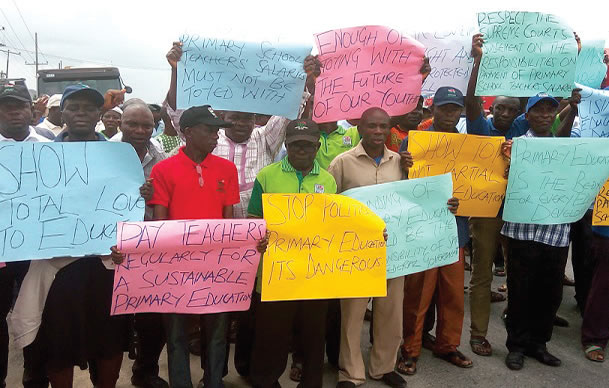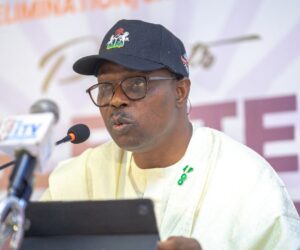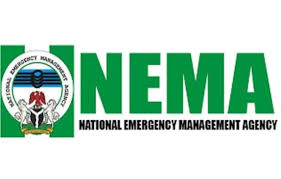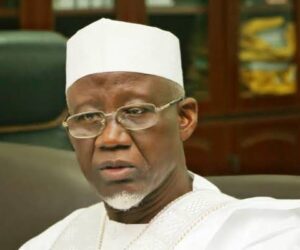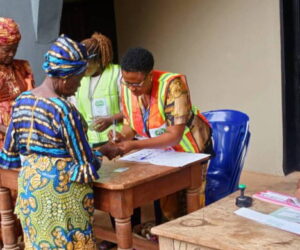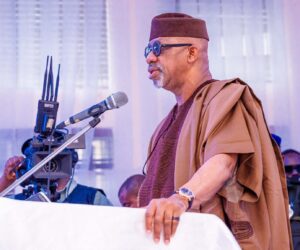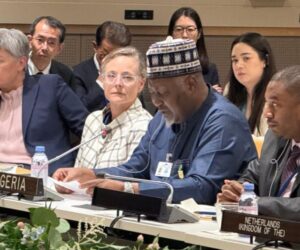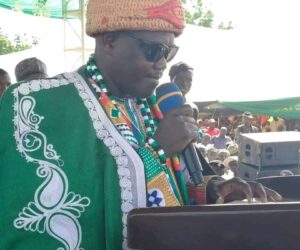Professor of Political Economy, University of Abuja, Ernest Ereke, has warned that Nigeria was “a step away from a closed civic space.”
Speaking during the public presentation of the 2024 Journalism and Civic Space Status Report by the Wole Soyinka Centre for Investigative Journalism (WSCIJ) in Lagos.
Our correspondent reports that the report gives a detailed analysis of trends, patterns, and recommendations shaping Nigeria’s media landscape
A press statement by the WSCIJ noted that the report, titled: “Shrinking Freedoms, documented 103 incidents of civic space violations reported 342 times in 2024 with journalists as the most targeted group, accounting for over half of all survivors and victims.
“The Nigerian Police were implicated in over 65 per cent of incidents, exposing persistent institutional weaknesses and impunity. Violations were almost evenly split between violent and non-violent acts, while media coverage of such incidents remained.”
The centre noted that Ereke, who reviewed the report, described the findings as “very disturbing” warning that Nigeria’s democratic institutions are being hijacked and privatised to serve private interests, a development he characterised as “state capture in its most dangerous form”.
On his part, Founder of the Foundation for Investigative Journalism (FIJ), Fisayo Soyombo, and a panellist at the event raised similar concerns, noting that threats to press freedom go beyond arrests or physical attacks.
“We often think about freedom only in terms of whether a journalist is alive or detained, but true freedom is about whether journalists can report without fear of reprisals,” he said. According to Soyombo, “It will be difficult to make progress when the police show lack of basic understanding of rights and are at the beck and call of politicians.”
the centre listed other panellists to include Country Director of Amnesty International Nigeria, Isa Sanusi, and Police Public Relations Officer (PPRO), Lagos State Command, Abimbola Adebisi, who reinforced the urgency of protecting press freedom and rebuilding trust between the police, journalists, and the public.
Adebisi acknowledged that the communication gap between the police and the media sometimes fuelled mistrust, while highlighting the efforts of the Police Complaint Response Units to address public grievances.
“The police cannot do it alone,” she said. “We need journalists to report responsibly and accurately to foster understanding.”
In her remarks, Executive Director/CEO of WSCIJ, Motunrayo Alaka, described the report as both “a mirror and a call to action”, urging all stakeholders: government, media, and civil society, to work together to ensure that Nigeria remains a society where truth and democracy can truly thrive.
Partnerships & Grants Manager, Centre for Journalism Innovation and Development (CJID), Bisan Habu, thanked the WSCIJ and the Netherlands Embassy for the collaboration noting the need to protect the civic space and also emphasised the importance of the collaboration, which he describes as “a statement of collective result to defend democracy, accountability and amplify the voices of those often unheard.”
Deputy Consul General, Peter Keulers, commended WSCIJ’s commitment to evidence-based advocacy and described civic space as the oxygen of democracy.
“When it shrinks,” he said, “democracy suffocates. We must defend the space where citizens speak, where the media holds power to account, and where democracy can truly breathe.”
Blueprint report that the 2024 report draws on monitored media reports and testimonies to document infringements affecting citizens, journalists, and human rights defenders.
“It builds on earlier editions: Hushed Voices and the Media’s Defence of Civic Space (2022) and Hushed Voices in an Election Year (2023), which have collectively tracked recurring threats to civic space and press freedom in Nigeria.
“This latest edition gives a picture of continued trend of how both state and non-state actors contribute to the shrinking of democratic freedoms, while highlighting opportunities for advocacy and reform.
The public presentation brought together a wide range of stakeholders, including journalists, editors, media executives, academics, civil society actors, human rights advocates, law enforcement officials, and representatives of the diplomatic community, all united by a shared commitment to safeguarding press freedom and civic space in Nigeria.
The panel, moderated by an Editor at Deutsche Welle (DW), by Amaka Okoye, fostered an engaging and thought-provoking discussion on the findings of the report, highlighting both the challenges and opportunities in protecting democratic freedoms.
The Civic Space Guard programme, under which the report was developed, started in 2021 and it has been part of the Leveraging the Power of the Media to Fortify the Civic Space and Tackle Malinformation programme, implemented by the WSCIJ and the CJID with support by the Embassy of the Kingdom of the Netherlands since 2023.
The programme equips journalists with the tools, training, and support needed to report safely, uphold accountability, and strengthen Nigeria’s democracy.
The Civic Space Guard initiative is part of the Leveraging the Power of the Media to Fortify the Civic Space and Tackle Malinformation programme, implemented in collaboration with the Centre for Journalism Innovation and Development (CJID) and supported by the Embassy of the Kingdom of the Netherlands. The project equips journalists with the tools, training, and support to report safely, uphold accountability, and strengthen democracy.

